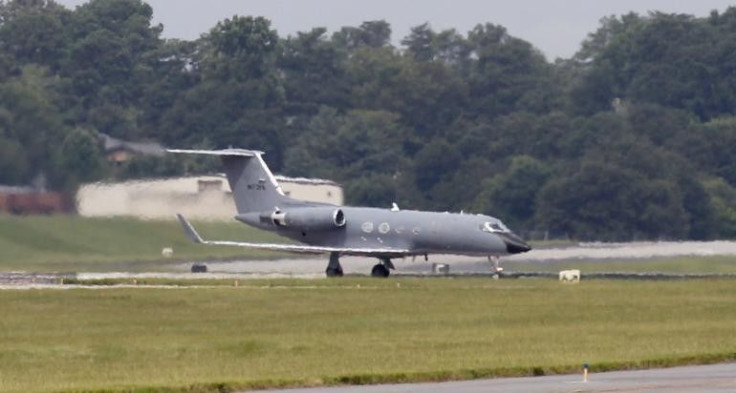American Doctor Dr Kent Brantly Survives Deadly Ebola, Released from Hospital, Sent Home

The experimental drug ZMapp to counter the deadly Ebola virus seemed to be working. Its first human recipients, American missionaries Dr Kent Brantly and Nancy Writebol, have been discharged by Emory University Hospital. Both have been declared as virus-free, safe for release and ok to go home.
"Today is a miraculous day. I am thrilled to be alive, to be well and to be reunited with my family," a frail-looking but definitely happy after his health condition Brantly said at a press conference in Atlanta, Georgia.
Hospital workers cheered, clapped and cried as Brantly entered the prepared news conference, gripping his wife Amber's hand as he walked.
Read: Ebola Apocalypse: Hope Remains in Secret Serum, Could Avert Apocalyptic Style Plague
"Through the care of the Samaritan's Purse and SIM missionary team in Liberia, the use of an experimental drug, and the expertise and resources of the health care team at Emory University Hospital, God saved my life - a direct answer to thousands and thousands of prayers," the 33-year-old doctor said.
Dr. Bruce Ribner, director of Emory's Infectious Disease Unit, said after a rigorous course of treatment and testing, Brantly has been found to have recovered from the Ebola virus disease and can already return to his family, to his community, and to his life "without any public health concerns,"
Read: Ebola Outbreak Preventable Through Proper Hygiene, Washing with Soap & Water; Spanish Priest Confirmed to Have Virus
Brantly got infected with the fatal Ebola virus while working in a Liberian ward. Upon disclosure of his condition, he was immediately repatriated back to the U.S. for treatment.
Writebol had been released on Tuesday from Emory. She did not want to make a public statement. Christian mission group SIM USA said in a statement she was resting in an undisclosed location with her husband.
Read: Ebola Outbreak: Vaccine Trials on Humans to Begin Soon, Could Be Marketed By 2015
When asked if the experimental drug ZMapp was the sole reason that helped the faster cure and recovery of both missionaries, Ribner said with all honesty that they cannot say yet.
"The honest answer is we have no idea," Ribner said.
Even Dr. Anthony Fauci, director of the National Institute of Allergy and Infectious Disease at the National Institutes of Health, said they aren't quite certain yet if ZMapp really worked as it should.
"I'd say we have a couple of people who've recovered, they've gotten excellent medical care and the specific therapy, ZMapp ... may have had a role in it but we don't know," Fauci told MSNBC on Thursday.
Read: Ebola Update: Canada to Donate 1,000 Experimental Vaccine Doses VSV-EBOV to WHO
Apart from Brantly and Writebol, ZMapp was also given to a third patient, a Spanish priest. He died, however, from the infection.
Two other doctors in Liberia and a nurse were also given the experimental serum.
WHO reported, citing sources in Liberia, the two of those patients have shown marked improvement following their treatment.
YouTube/ RT America





















